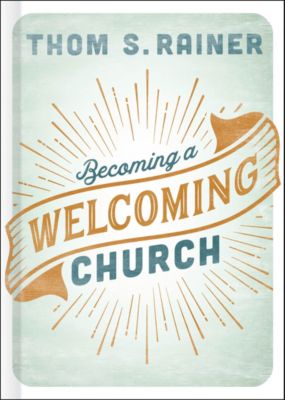
More than 1 in 4 church switchers say they changed because they had unfulfilled needs in the church (29%).
By Marissa Postell Sullivan
Each year, some churchgoers make a move to a church across town, and some say they make this change because their previous church didn’t meet their needs. What needs do churchgoers in your congregation have, and is your church meeting them?
A recent study from Lifeway Research found 53% of U.S. regular churchgoers say they have attended more than one church as an adult. But for most of those changing churches, changing homes was a factor (60%). Still, 40% of church changes were driven by something other than a residential move.
Pointing to these as their top reasons for switching churches, more than 1 in 4 church switchers say they changed because some things changed about the church they did not like (29%) and the church was not fulfilling their needs or reasons for attending church (29%). The percentage of churchgoers who cited unfulfilled needs as a reason for changing churches without a residential move decreased significantly from 2006 when 44% said this was a reason for them.
For the 29% today who say they switched due to the church not fulfilling their needs, most (62%) say their previous church was not helping them develop spiritually. For 2 in 5 (41%), they did not feel engaged or involved in meaningful work in the church. Around a quarter say they did not become friends or close with anyone at the church (27%), the church did not help them find happiness (26%), the church did not help them find answers to questions in their life (22%), or no one seemed to care about their situation or problems (22%).
Among those who say they switched congregations due to their church not fulfilling their needs, most (62%) say their previous church was not helping them develop spiritually. Click To TweetThe youngest and oldest churchgoers are the most likely to say they left their previous church because it was not fulfilling their needs or reasons for attending church. Churchgoers 18-29 (43%) and over 65 (35%) are more likely to say their previous church was not fulfilling their needs than churchgoers 30-49 (22%) or 50-64 (24%).
Current church comparisons
In many cases, switchers feel as if the church they move to meets their needs better than their previous church. The most common unfulfilled need for churchgoers was the need for spiritual development. Among churchgoers who switched churches for any reason, most say their new church fosters spiritual growth and maturity more (30%) or much more (25%) than their previous church did. Another 37% say it’s the same as far as fostering spiritual growth. Only 5% say their new church fosters spiritual growth and maturity less than their previous one, and 2% say much less.
Churchgoers also say they did not feel engaged or involved in meaningful work in their previous church. Nearly half of churchgoers who switched congregations say their new church does more (28%) or much more (21%) to provide them with opportunities to use their talents to serve. Two in 5 (41%) say their church does the same as their previous church to provide these opportunities. And 1 in 10 say their church does less (8%) or much less (2%) than their previous church.
Among churchgoers who switched churches, most say their new church fosters spiritual growth and maturity more (30%) or much more (25%) than their previous church did. Click To TweetOther churchgoers cited a lack of close friendships at their former church. More than half of church switchers say at their current church they have developed deep relationships with their fellow church members more (30%) or much more (22%) than at their former church. And 35% say the depth of their relationships at their current church is the same as at their previous church. Fewer say their deep relationships are less (9%) or much less (4%) than at their previous church.
For other church switchers, their previous church was not helping them find answers to questions in their lives. But nearly 3 in 5 churchgoers who switched churches say sermons at their church are more (32%) or much more (26%) consistently engaging and enlightening than sermons at their former church and the preaching is more (31%) or much more (28%) relevant. Meanwhile, 35% say the sermons are just as engaging, and 34% say the preaching is just as relevant. Fewer say sermons are less (5%) or much less (2%) engaging and the preaching is less (5%) or much less (2%) relevant than at their previous church.
Where are the gaps?
Younger churchgoers are more likely than older churchgoers to say they have found deeper relationships and that the sermons are more engaging at their new church. Those 18-29 (59%) and 30-49 (65%) are more likely than those 50-64 (46%) and over 65 (43%) to say their relationships with other members have more or much more depth than at their previous church. And those 18-29 (66%) are among the most likely to say the sermons at their new church are more or much more consistently engaging and enlightening.
Those who attend church less frequently may struggle to build relationships in the church, find ways to serve, and experience spiritual growth. Those who regularly attend worship services the least (twice a month) are the most likely to say they have less or much less deep relationships with other members than at their previous church (23%), and they are the least likely to say their church provides them with more or much more opportunities to use their talents to serve (38%). However, those who attend worship services at least four times a month are among the most likely to say their church fosters more or much more spiritual growth and maturity than their former church (59%).
Even if they switch congregations, those who attend church less frequently may struggle to build relationships in the church, find ways to serve, and experience spiritual growth. Click To TweetChurchgoers with evangelical beliefs are more likely than those without such beliefs to say their current church does more or much more than their previous church to provide opportunities to serve (56%), foster spiritual growth (63%), offer consistently engaging sermons (63%), and offer preaching that is relevant to their lives (64%). Furthermore, Restorationist movement and Methodist churchgoers are among the most likely to say their new church allows them more or much more opportunities to use their talents to serve (52% and 51%) and that they have more or much more deep relationships at their new church (61% and 51%). Presbyterian/Reformed churchgoers are also among the most likely to say they have more or much more deep relationships at their new church (59%) and that their new church fosters more or much more spiritual growth (64%).
Additionally, African American and white churchgoers are among the most likely to say their new church does more or much more to foster spiritual growth and maturity (62% and 55%) and to offer consistently engaging sermons (61% and 59%). African Americans are also among the most likely to say their current church does more or much more to provide them opportunities to use their talents to serve (57%).
For permission to republish this article, contact Marissa Postell Sullivan.













